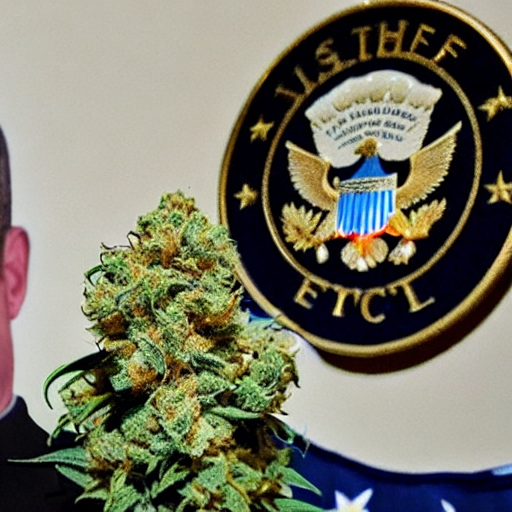The US Secret Service has announced a significant policy change regarding job applicants with a history of past cannabis use. A look at the agency’s more nuanced approach to evaluating applicants’ drug histories and what it means for qualified candidates.
The United States Secret Service has recently announced a significant policy change regarding job applicants who have used marijuana in the past. According to a Marijuana Moment newsletter released on May 2, 2023, the agency will no longer automatically disqualify candidates who have consumed cannabis in the past. This is a significant shift from the agency’s previous policy, which had strict rules against any past use of illegal drugs, including marijuana.
Under the previous policy, job applicants who admitted to using marijuana were automatically disqualified from consideration, regardless of the amount or frequency of their use. This blanket approach to cannabis use has been increasingly challenged in recent years, as more and more states have legalized the drug for both medicinal and recreational purposes. Many employers have been reevaluating their drug testing policies and relaxing restrictions on past cannabis use in response to this changing legal landscape.
The Secret Service’s new policy still requires applicants to disclose any past cannabis use, but their applications will now be evaluated on a case-by-case basis. The agency will consider factors such as the nature and circumstances of the marijuana use, as well as the amount and frequency of use, before making a hiring decision.
This more nuanced approach to evaluating applicants’ drug histories is a positive step forward for the agency, as it recognizes that past cannabis use does not necessarily preclude an individual from being a qualified candidate for a job with the Secret Service. The agency’s mission is to protect the country’s leaders and critical infrastructure, and it needs to attract the best possible candidates to fulfill this important task.
The Secret Service’s decision to relax its rules on past cannabis use for job applicants may also reflect a growing recognition of the relative safety of marijuana compared to other drugs. While cannabis use can have negative health effects, including potential impacts on mental health, it is generally considered to be less harmful than many other drugs, such as opioids or methamphetamine. Additionally, the drug is increasingly being used for medicinal purposes, particularly to manage chronic pain, anxiety, and other conditions.
The changing legal and cultural attitudes towards marijuana use in the United States have also played a role in the Secret Service’s decision. As more and more states have legalized the drug, it has become increasingly difficult for employers to justify blanket bans on past cannabis use. The Secret Service’s decision to take a more nuanced approach to evaluating applicants’ drug histories is in line with broader trends in the country.
Overall, the Secret Service’s decision to loosen its rules on past cannabis use for job applicants represents a significant shift in the agency’s hiring policies. By taking a more nuanced approach to evaluating applicants’ drug histories, the agency may be able to attract a wider range of qualified candidates while still maintaining its high standards for security and professionalism. This is a positive development for the agency and for individuals who have used marijuana in the past but are otherwise qualified for jobs with the Secret Service.




